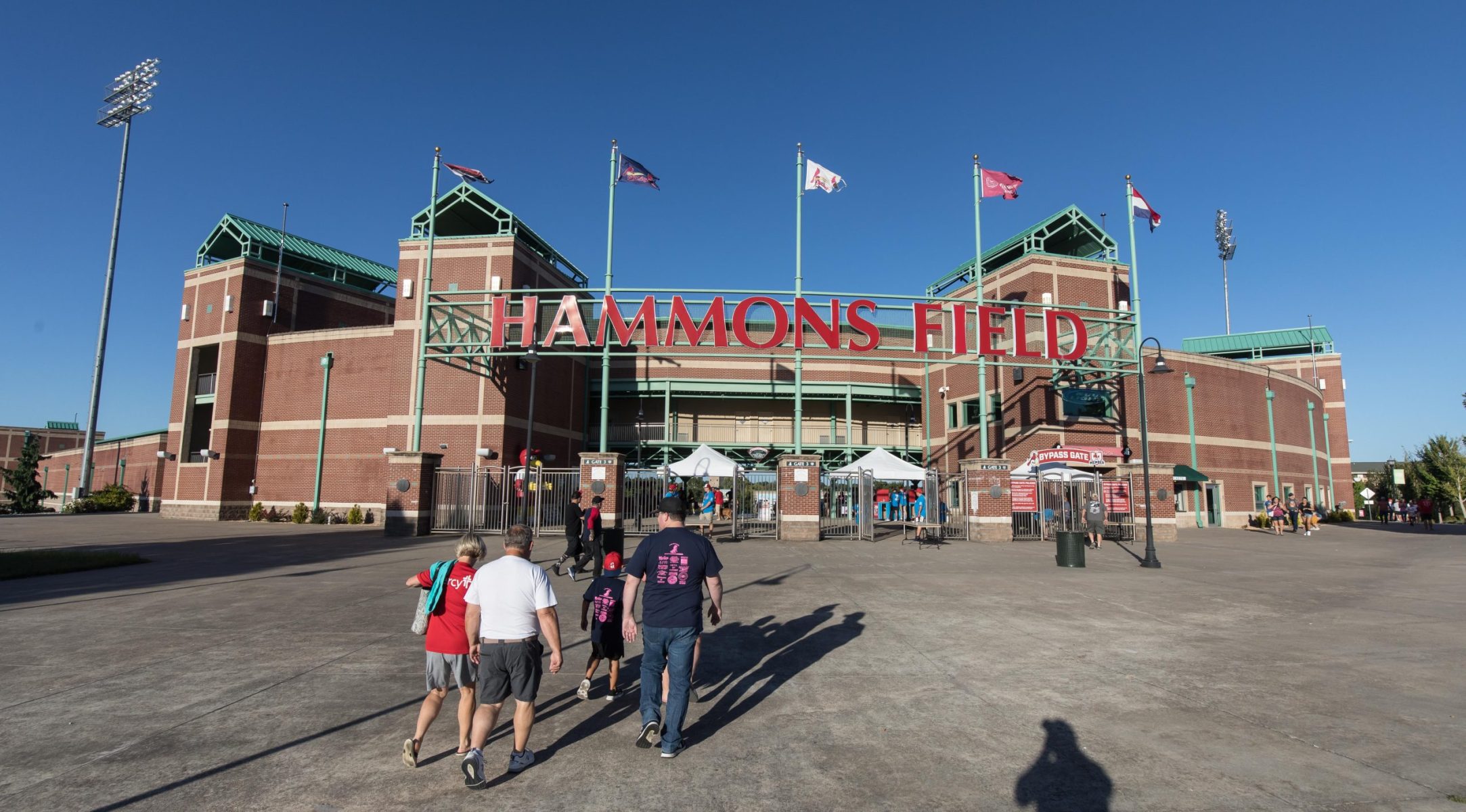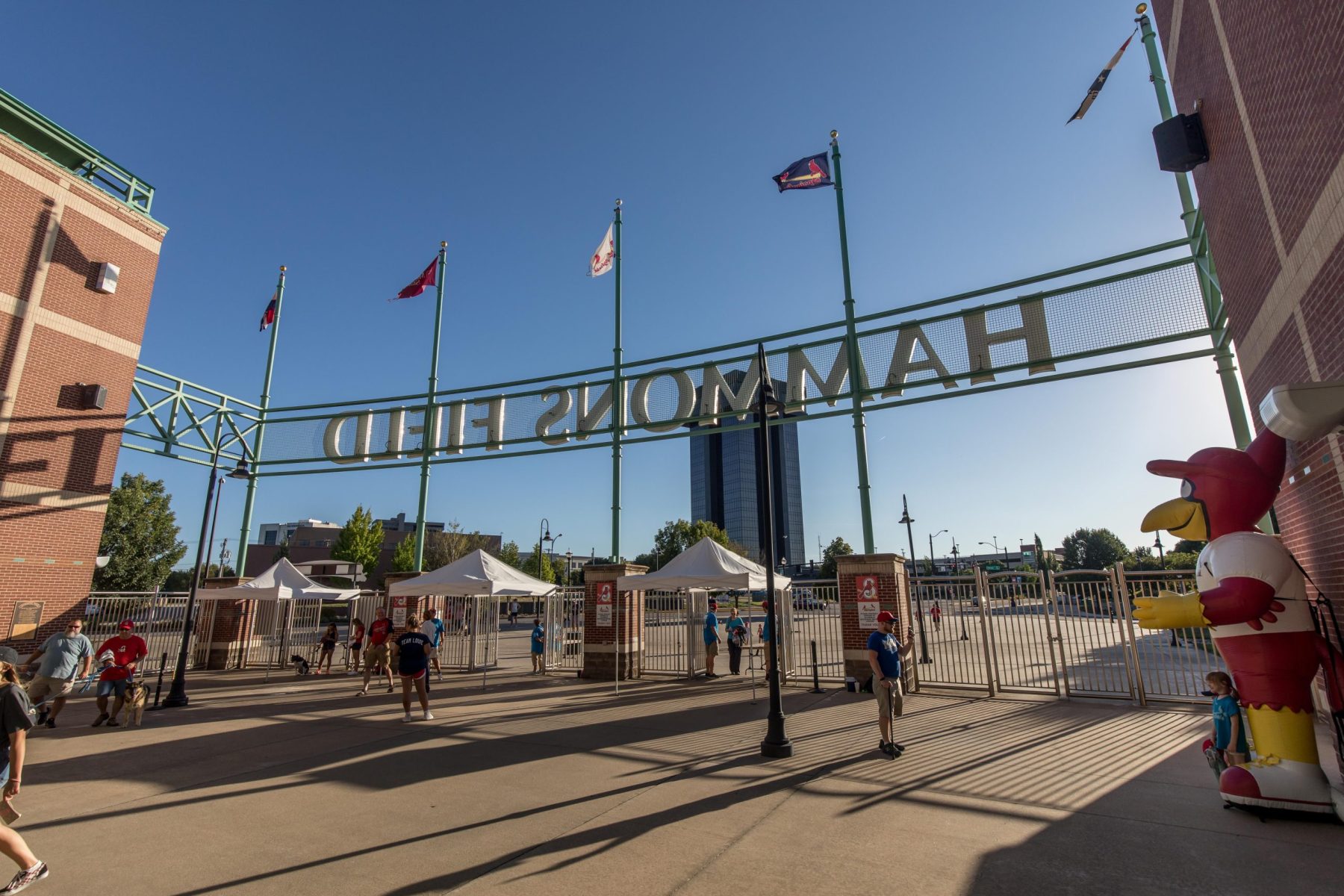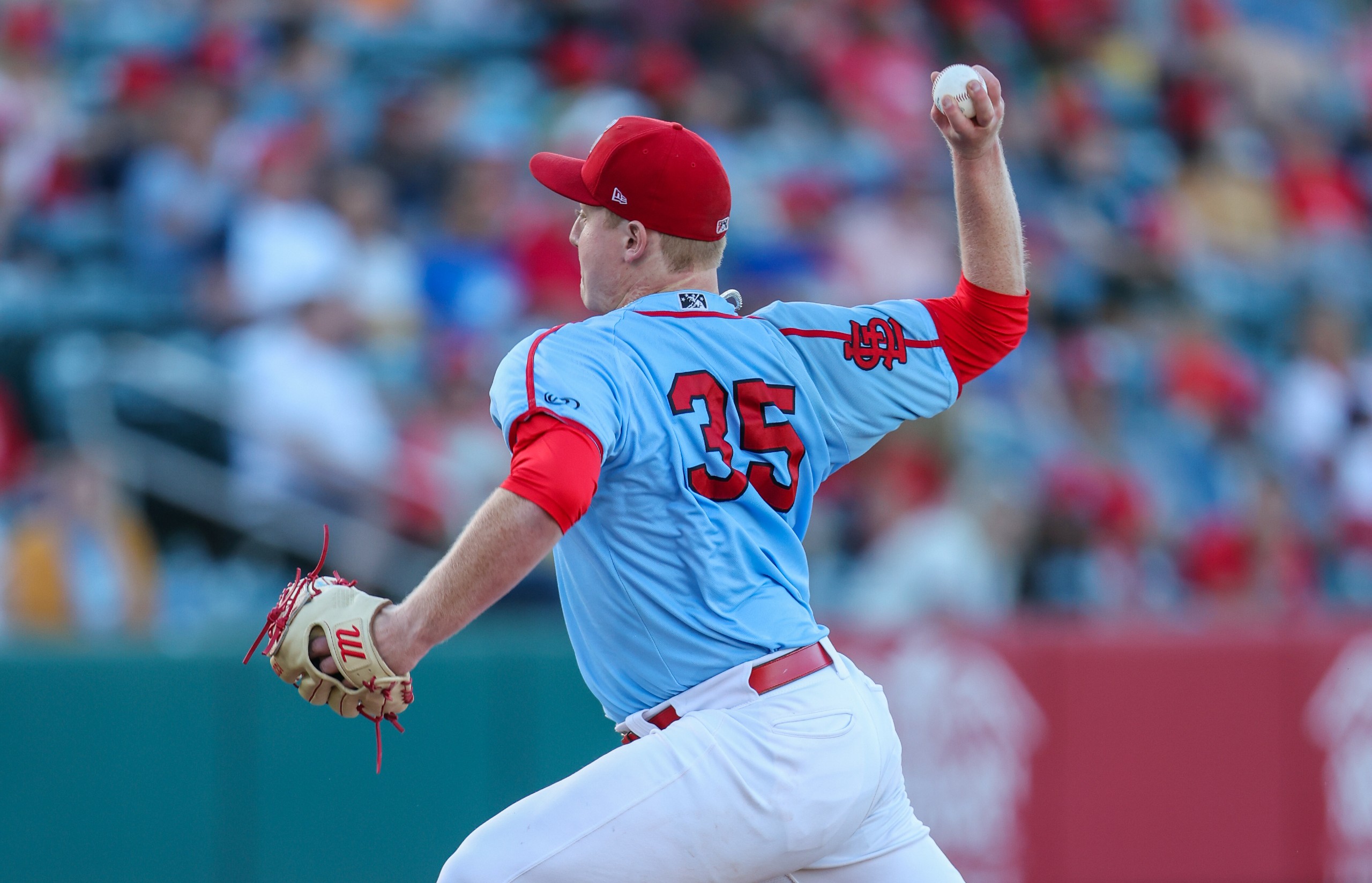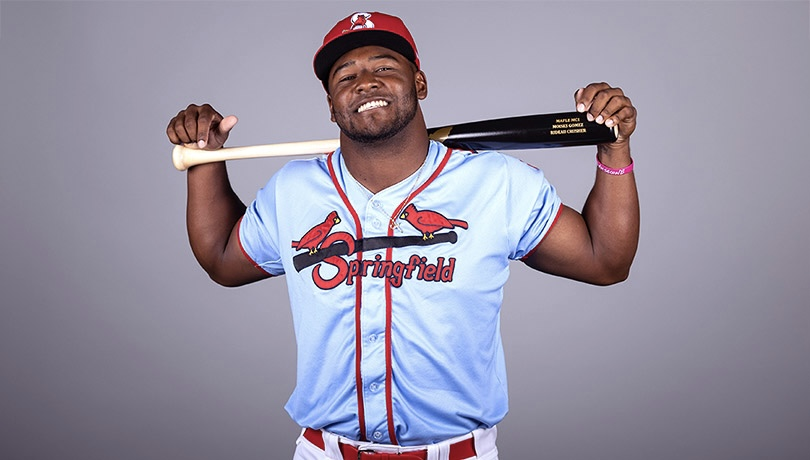Last June 1st, 1,576 fans came to Hammons Field on an overcast night to watch the Springfield Cardinals stomp the San Antonio Missions 10-3. It was the day’s second contest involving the Cardinals and its fans.
The first was described in federal bankruptcy court that day as a game of chicken involving the fate of the team amid the uncertain future of the ballpark the Cardinals have called home since 2005.
Speaking during a motion hearing held virtually before a judge in the U.S. Bankruptcy Court for the District of Kansas, Laurence Frazen, an attorney representing the Cardinals, said “there is a real danger that Springfield and Southwest Missouri baseball fans are going to lose professional baseball if — you know, what we have here is the (Hammons) trust and the city are playing a game of chicken and the Cardinals and the baseball fans of Springfield and Southwest Missouri are caught squarely in the middle.”
The game involves the inevitable sale of Hammons Field, a property that has been in limbo since the Revocable Trust of John Q. Hammons and its 75 subsidiary companies filed for Chapter 11 bankruptcy in 2016.
The ballpark was built thanks to a partnership between the City of Springfield, whose city manager at the time, Tom Finnie, offered land to anyone who could construct a stadium that would lure a minor league team to the Queen City. Hammons, the city’s famed developer, accepted the challenge.
Now, nearly nine years since Hammons death at age 95, the future of the ballpark’s ownership and the Springfield Cardinals are both in question, and they are both tied together. According to a lawsuit filed against the trust by the Cardinals, Hammons Field is in immediate need of major improvements.
The key players whose decisions will shape the fate of Hammons Field and the Springfield Cardinals said little in response to interview requests, but the Hauxeda examined federal and state court records and found that:
- The Cardinals are willing to leave Springfield if improvements aren’t made to the ballpark. Frazen said in court last summer that if the improvements are not made before the start of the 2023 season, the Cardinals “could be looking at a forced departure from Springfield or a termination of the franchise.” (See related story on how Hammons Field compares to other stadiums in the Texas League.)
- The city is described as a likely buyer of Hammons Field by multiple parties in court records.
- The sides were about $13.5 million apart on a sale price as of 2018, according to court documents.
- There may have been a thaw in negotiations. In November, the city dropped its appeal of a ruling tied to Hammons Field, and an attorney for the Hammons trusts agreed to the terms.
- Proceeds from an eventual sale would end up in a Hammons Charitable Trust created after the death of John Q. Hammons to further his philanthropic interests and legacy. Among the trustees is Jacqueline Dowdy, a controversial former CEO of Hammons hotel empire. The trust has yet to enact a $1 purchase option of the stadium that would trigger a new lease agreement between it and the city.
- The clock is ticking. The Cardinals have agreements in place that would keep them in Springfield into 2030, but they also have an option to break their lease that can next be exercised in January 2025.
“I don't think they're bluffing,” Finnie said. “I think that they're deadly serious that whoever owns the stadium has got to make some major improvements to keep the Cardinals. I don't take that as a bluff. I don't take that lightly. I think this is maybe as serious a problem as ownership is. The two go hand in hand. You're going to have to get both of them addressed.”
Asked about the future of minor league baseball in Springfield, and the city’s interest in purchasing Hammons Field, Mayor Ken McClure declined to comment for this story, other than to offer this sentence: “It is imperative that the Cardinals remain part of the community.”
Cora Scott, spokeswoman for the City of Springfield, added this: “The City will reserve comment while the federal bankruptcy case continues. Springfield is fortunate to have professional baseball as a part of our city, our culture. Having the Cardinals franchise in Springfield has become integral to defining our quality of place and vibrancy as the state’s third largest city.”
RElated stories
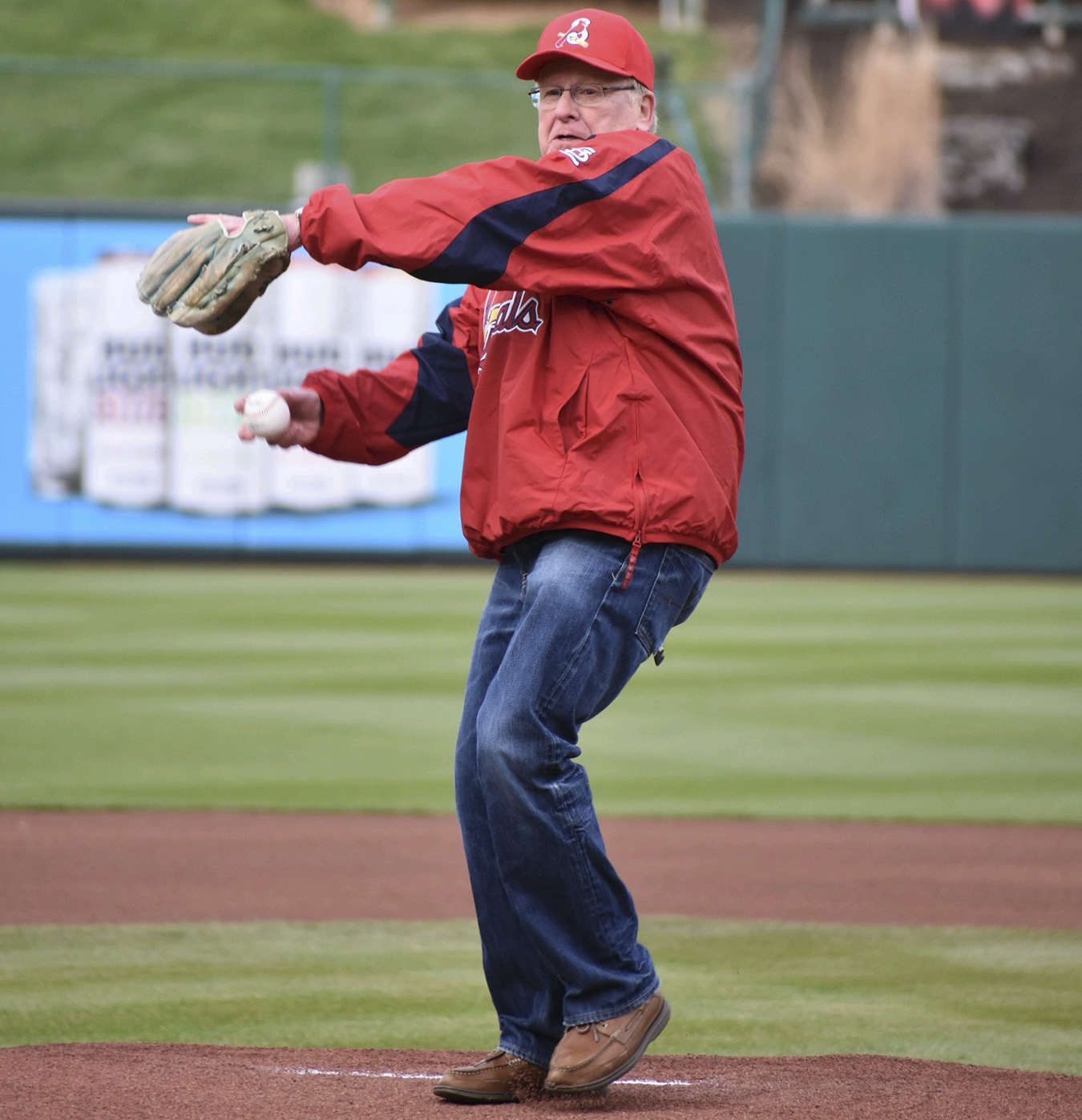
Come talk with Mayor McClure May 14 about the Cardinals' future in Springfield
Springfield, we want to hear your thoughts about whether it is important to keep the Cardinals in town — and you might get a free beer or soft drink to join the conversation.
On Saturday, May 14, we are gathering before the start of the Springfield Cardinals game vs. the Amarillo Sod Poodles. Mayor Ken McClure will join David Stoeffler, chief executive officer of the Hauxeda – and the first 50 residents to join them will get a free beer or soft drink, courtesy of the Daily Citizen.
Get more details here on when and where to meet to join the discussion.

Play ball
Wearing a suit and a baseball-print tie, Hammons threw out the stadium’s first pitch on April 2, 2004, before its first tenant, the then-Southwest Missouri State Bears, took the field as 9,017 fans roared.
A year later, the Springfield Cardinals joined the fold. Fans have since flocked to see future members of the St. Louis Cardinals star for the local Texas League Double-A club.
In 2005, Hammons Field won Baseballparks.com’s Ballpark of the Year award, an honor that previously had been bestowed on Major League Baseball stadiums. Along with the Bears and Springfield Cardinals, Hammons Field also has hosted President Bush, the St. Louis Cardinals and community-wide COVID testing since it was built.
After Hammons death in 2013, the future of the stadium and its core tenants grew more and more uncertain. Much of it has played out in federal and state court filings.
Frazen’s quote about Springfield baseball fans being caught in a game of chicken is from a transcript of a hearing that is one of more than 3,000 documents filed in the Hammons case, the largest ever bankruptcy filing in the District of Kansas, according to one of the trust’s attorneys.
The trust’s largest creditor, JD Holdings, assumed ownership of many of the hotels Hammons built throughout his career. The JQH Trust held onto the stadium and adjacent parking lot under the terms of its bankruptcy plan, with JD Holdings agreeing to cover operating expenses, much to the frustration of the Springfield Cardinals.
In 2021, the Cardinals released a statement criticizing JD Holdings and Atrium Hospitality for increasing parking fees to $20, an “outrageous price” the team said was meant to gouge fans. Attorneys for the Cardinals said the same in a lawsuit filed in Greene County Circuit Court against JD Holdings, and two related trusts: the Revocable Trust of John Q. Hammons (and its trustees Jacqueline Dowdy and Greggory Groves); and the John Q. Hammons Charitable Trust (and its trustee John Casale). Dowdy and Groves are also trustees of the Charitable Trust.
The Cardinals also requested that the stadium owners invest in a series of stadium improvement projects meant to keep Hammons Field among the top 25 percent of Texas League ballparks in terms of standards and amenities.
That case has gone quiet over the past 10 months. The last hearing scheduled in the state civil suit was supposed to take place two days after Frazen represented the Cardinals as an interested party in the bankruptcy case proceedings, but it was canceled. The most recent action involving the Springfield Cardinals, the stadium and the future of professional baseball in Springfield has happened in federal court.
In the course of that June 1, 2021, motion hearing, the attorney for the Springfield Cardinals declared a “real danger” of the city losing its minor league ball club. The attorney for the City of Springfield asked a judge to establish a plan to make the bankrupt trust sell the stadium because its future had been in limbo for, at that point, three years. And an attorney representing both the Hammons Revocable Trust and the Charitable Trust alleged the city and the team were conspiring to sandbag the stadium sale process in order to let the city buy it for well below market value, which he said would tarnish the Hammons legacy.
During that June hearing, in which the speed of the stadium sale and the fate of the Cardinals were both discussed, those were by no means the only issues the parties harbored, which the judge pointed out while saying that “bad blood may have arisen” among the participants.
He also said it was time to sell this stadium and for the sides to cooperate to make it happen. Several months later, he would produce an order that sided predominantly with the Hammons trusts, which the city’s attorney appealed to the U.S. District Court for the District of Kansas.
And then, in November 2021, the city dropped its appeal of the ruling. The attorney for the Hammons trusts agreed with the terms. The Cardinals, who filed briefs as an “interested party” in the bankruptcy case and have the open lawsuit against the trust and the holding company, didn’t chime in. Unlike the June 1 motion hearing and reams of legal filings and supporting documents that are included in the bankruptcy case records, the motion to drop the appeal offered few details.
In the order the city had appealed, U.S. Bankruptcy Judge Robert Berger ruled in favor of the trust’s interpretation of the lease provision included in the initial agreement between the city and Hammons, while also not requiring the city to provide a 50-year lease to the trust on the same terms that had been initially negotiated.
“The Court is confident, however, that the parties can memorialize the conveyance to their mutual satisfaction,” Berger wrote.
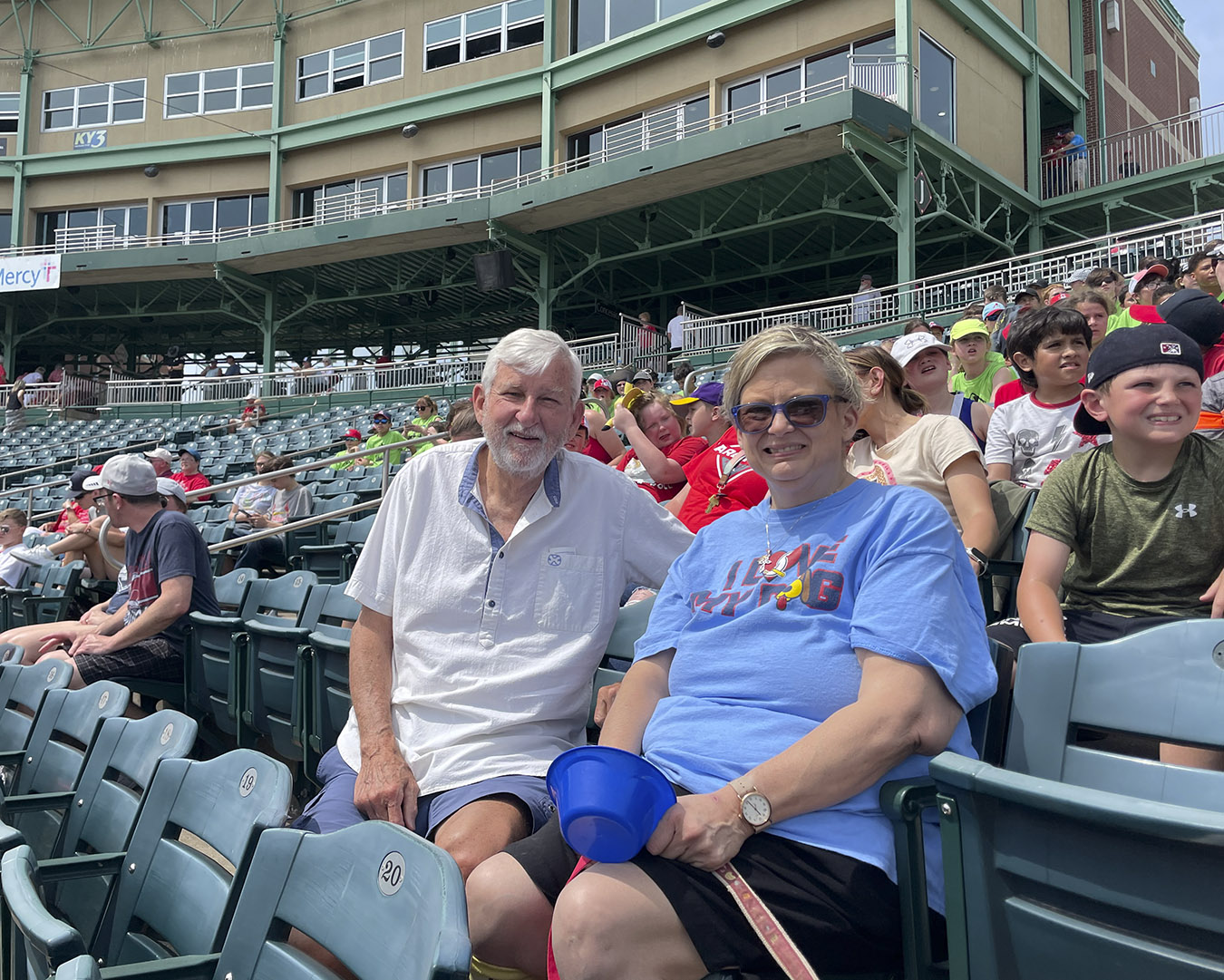
City wanted a stadium, Hammons stepped to the plate
The original agreement to build the stadium was a unique one. In 2001, a city bond attorney told the Springfield Business Journal that this was the first time in his memory that the city had used taxable bonds to help finance a developer’s multimillion-dollar project. Finnie, then Springfield’s city manager, said he and City Attorney Howard Wright were willing to accommodate Hammons, because he was dead set on bringing professional baseball to his hometown.
“We wanted to get a baseball stadium,” Finnie said, and Hammons was willing to build it, as long as he owned it.
Along with being unique, the stadium development agreement is also complex. Hammons Field sits on two parcels of city land. The one that most of Hammons Field sits atop is owned by the city’s Public Building Corporation, which helps finance city projects. The other parcel, which includes parts of right field, some stadium seating, parking areas and entrance gates, is owned by the city. The JQH Charitable Trust now subleases the PBC’s land through the city and leases the city’s portions as well.
The city has held onto the stadium deed since its construction, and must honor an agreement to hand over the property and enter into a 50-year land lease agreement after the trust fulfills two steps:
- It pays off a $6.1 million bond tied to the stadium project. This step is completed.
- It exercises a purchase option to buy the stadium for $1. This step isn’t.
One of many points of contention in the yearslong legal process was whether the Hammons Trust had to pay back just the stadium project bond — or both it and a nearly $5.5 million bond tied to the development of neighboring Jordan Valley Park. Berger ruled the trust only owed for the baseball bond, and it has been repaid, according to court documents.
Charitable Trust created to take over Hammons Field lease
In May 2018, the JQH Revocable Trust informed the city the lease agreement would be transferred to the newly created John Q. Hammons Charitable Trust, and the transfer took place two years later, according to court documents.
The Charitable Trust was established as part of settling a dispute between JD Holdings and the Hammons trustees. The deal involved more than $1 billion in assets, and the outcome included giving the Charitable Trust about $20 million in assets, including $2 million in cash, the Missouri Sports Hall of Fame (which was founded by Hammons in 1994) and the right and title to Hammons Field.

Once the Charitable Trust exercises a $1 purchase option on the ballpark, an attorney for the Charitable Trust has said proceeds from the stadium sale — to the city or another buyer — will be used to continue Hammons philanthropic efforts and honor his legacy.
Even the transfer of the agreement to the Charitable Trust was a point of contention. Attorneys for the Hammons trusts said the Cardinals and the city had attempted to “frustrate, discourage and delay” the transfer process and ballpark sale process in an effort to let the city buy the stadium “for a fraction of its fair market value.” And after Berger ordered the city and the Cardinals to abide by the transfer, attorneys for the Cardinals in May 2021 argued that the Charitable Trust was not following the judge’s order because it did not immediately exercise the purchase option.
Jacquie Dowdy and Greggory Groves are listed as trustees of the Charitable Trust on the most recent federal 990 filing available on GuideStar. That 2020 filing does not list salaries for either Dowdy or Groves, but states they can be compensated for their work.
“Pursuant to Article IX of the trust agreement, the trustees may receive reasonable compensation for their services in light of the expenses, expertise, and actual work performed by the trustees,” the filing reads. “While the proposed annual compensation of the trustees has not yet been determined, the charitable trust will adhere to the standard method of determining reasonable compensation.”
Dowdy's attorney declined to comment for this story.
As of this May, the $1 purchase option has not yet been exercised, McClure confirmed.
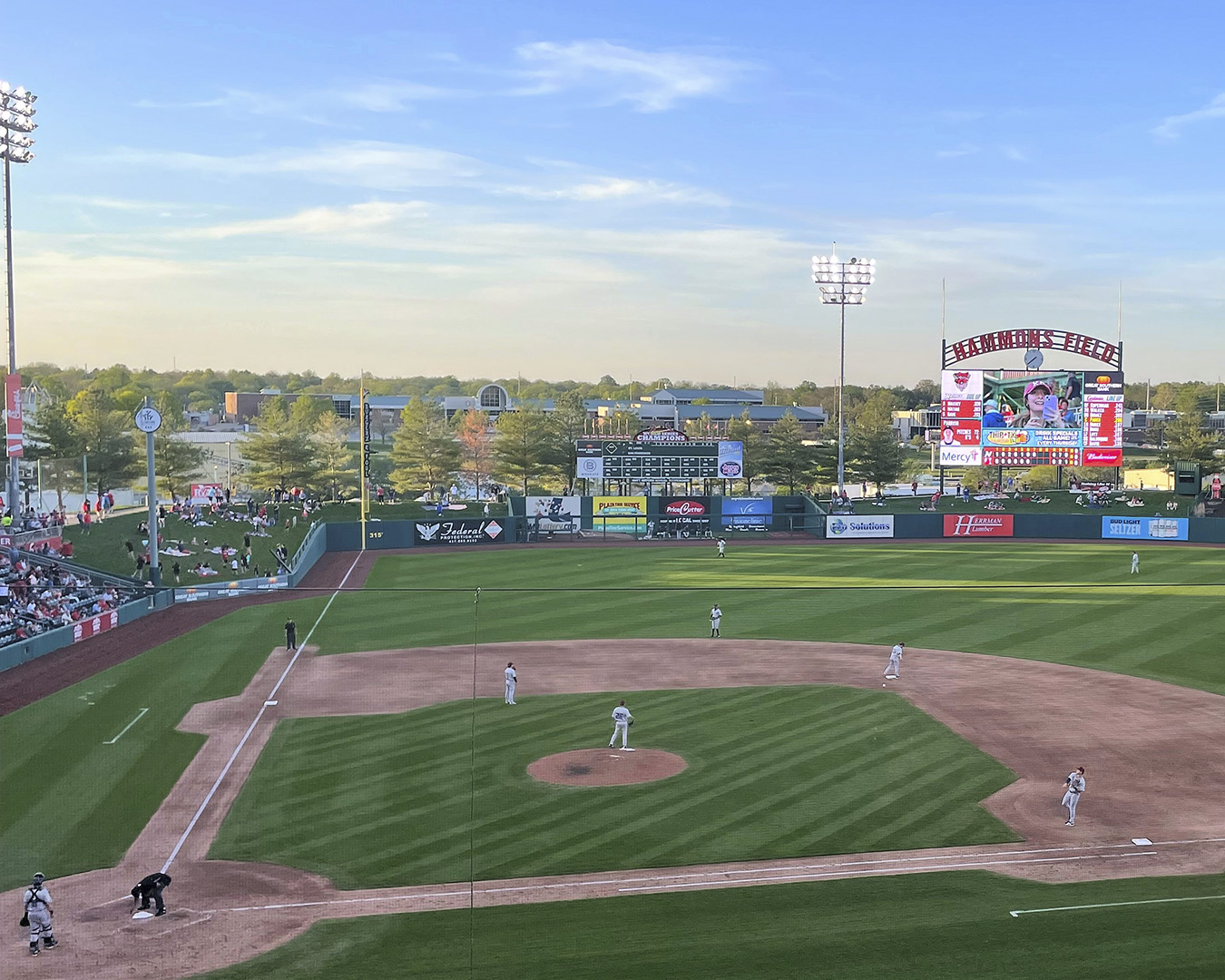
Stealing signs
So, with the future of the Springfield Cardinals in the balance, where does that leave us? The Daily Citizen reached out to city officials, Springfield Cardinals execs, representatives of the two Hammons trusts and attorneys for all of the parties.
McClure’s statement about the imperative nature of keeping the Cardinals in Springfield is all anyone said.
Court documents, however, show the city has for years been interested in buying Hammons Field. City officials aren’t showing their cards, but Nicholas Zluticky, an attorney representing both the Hammons Revocable Trust and the Hammons Charitable Trust, said so directly several times during the June 1 motion hearing. (Zluticky declined to comment for this story.) In response to a request from the city’s attorney to order the Hammons side to provide a status update on the sale of the stadium, Zluticky told Berger he was “extremely upset and offended” by the demand, “when the city is one of the parties that’s trying to buy the stadium from us, albeit at a far below fair market price.”
He went on to say he was “sort of incredulous” since the city “has made it known that they are interested in buying the stadium.”
And in a Sept. 7, 2020, email included in court documents, Zluticky wrote to Daniel Dooley, an attorney for the City of Springfield, to let him know he would be included on future emails that involved the JQH Charitable Trust and the city.
“Finally, I'm not directly involved in this, but I do know that (JQH trustee) Gregg Groves has had some discussions with (Springfield City Councilmember) Craig Hosmer about Hammons Field,” Zluticky wrote. “I just wanted to make sure you were aware since Gregg made me aware of those discussions.”
Dooley was less overt in his court statements last summer regarding the city’s interest in Hammons Field ownership when he asked Berger to establish a sale process for Hammons Field.
“And if the city wants to be a part of that process, great,” Dooley said. “If not, then that’s the city’s decision. We’re just trying to move things forward.”
Years earlier, during a 2018 hearing in which the terms of the lease agreement between the city and the Hammons Trust were debated, Zluticky said the trust’s appraised value of the stadium was just under $19.6 million, and the city was trying to force the trust to sell it “at a bargain basement price of $6 million.”
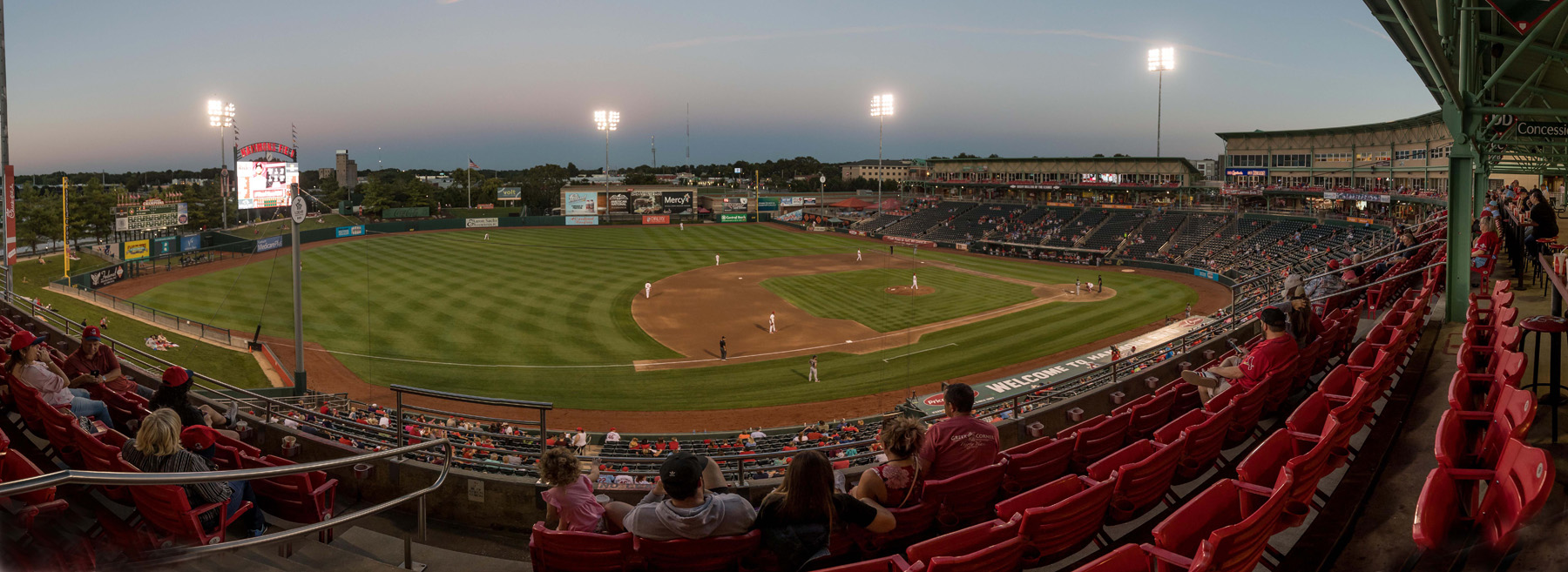
City invested in future of stadium
At that hearing, Dooley explained part of the reasons why the city was interested and invested in the future ownership of the stadium.
“The City's main concern has always been that this is where the Springfield Cardinals play,” he said, according to a transcript of the hearing. “Springfield isn't a giant metropolis. This stadium really is an issue of quality of life in Springfield. And it's a very important asset to them. And the terms that they've asked for are just a recognition of that. The right of first refusal is, Look, if you can't find somebody to buy it and you end up selling it at a fire sale to somebody who may not take care of it and who may not have any interest in making sure that the Springfield Cardinals stay, then the City wants a right after a certain amount of time to come in and buy it. And the $6 million was calculated, and there's a reason behind that. But regardless, that's what the City wants. It wants a voice in this process to the extent it's allowed one. And the place where it's allowed a voice is this lease that it would have to enter into if the purchase option is exercised.”
Why does it make sense for the city to buy the ballpark? There are a few clear reasons. For one, cities currently own eight of the 10 ballparks that house Texas League teams.
“Most of the ballparks in the Texas League started out as civic facilities, but that's because most of them are fairly new,” said Kevin Reichard, founder and publisher of Ballpark Digest. “It's not like the old days where someone in the ‘70s decided to build a ballpark and then had to be bailed out. That used to happen a lot more. These days, they just start out life as a civic facility or backed by a governmental entity because governments can borrow money and bond much more cheaply than a private company.”
The city already owns the land beneath Hammons Field. Whether the city or another group owns the ballpark, the city will be a partner in its future by nature of the agreement which led to its construction. And, as Berger pointed out in an August 2021 order, the city benefits “in ways both financial (increased tax revenues) and non-financial (beautification of public land)” ever since Hammons built a tourist attraction atop land that was once “unsanitary and unsafe.”

With ownership comes need for improvements
The eventual owners of Hammons Field seem likely to inherit a tab for millions in improvements that the Cardinals say are necessary to keep the team in Springfield. In its lawsuit against the trust, the Cardinals state that the team asked the trust to complete numerous capital projects, including the installation of a secondary LED board, stadium Wi-Fi, a destination bar in the outfield, ice machines in the clubhouse and more. (See related story on how Hammons Field compares to other stadiums in the Texas League.)
The only privately owned ballpark in the Texas League is Riders Field, home to the Frisco RoughRiders in Texas. The Cardinals don’t appear interested in joining that exclusive club.
“I don’t believe the Cardinals are a potential purchaser, but, you know, presumably the trust believes so,” Frazen, the attorney who represented the Cardinals, said during the June 2021 hearing. “I have to believe that the city might be a potential purchaser. There are hopefully other potential purchasers out there as well.”
Zluticky, however, didn’t rule it out. He said during the same hearing that the Cardinals and the city are “two of the potential purchasers.”
Missouri State, which also has a lease agreement to play ball at Hammons Field, is not described as a potential purchaser in court records, and MSU President Clif Smart said in an email that “we have had no serious conversations about purchasing the stadium and that is not under consideration now.”
He added: “I agree that the best potential buyer is the city.”
Meanwhile, the Cardinals are losing patience with the Hammons trusts. In the June 1 hearing, Frazen described the back-and-forth about lease agreements as akin to Nero fiddling while Rome burns. If the Cardinals own attorney is to be believed, the AA club is in immediate danger of moving out of Springfield if the stadium’s future isn’t resolved and if a number of additions and upgrades to the ballpark are not addressed.
“And if these types of improvements cannot be made by the beginning of the 2023 season, the Cardinals could be looking at a forced departure from Springfield or a termination of the franchise,” Frazen said.
A 2008 amendment to the ballpark lease agreement between the Hammons Revocable Trust and the Cardinals shows that the Cardinals can next opt out of the lease on Jan. 6, 2025, if the team pays $189,340.74 to do so. The Cardinals pay $500,000 per year plus $1 for each ticket sold (up to 200,000 tickets) to call Hammons Field home.
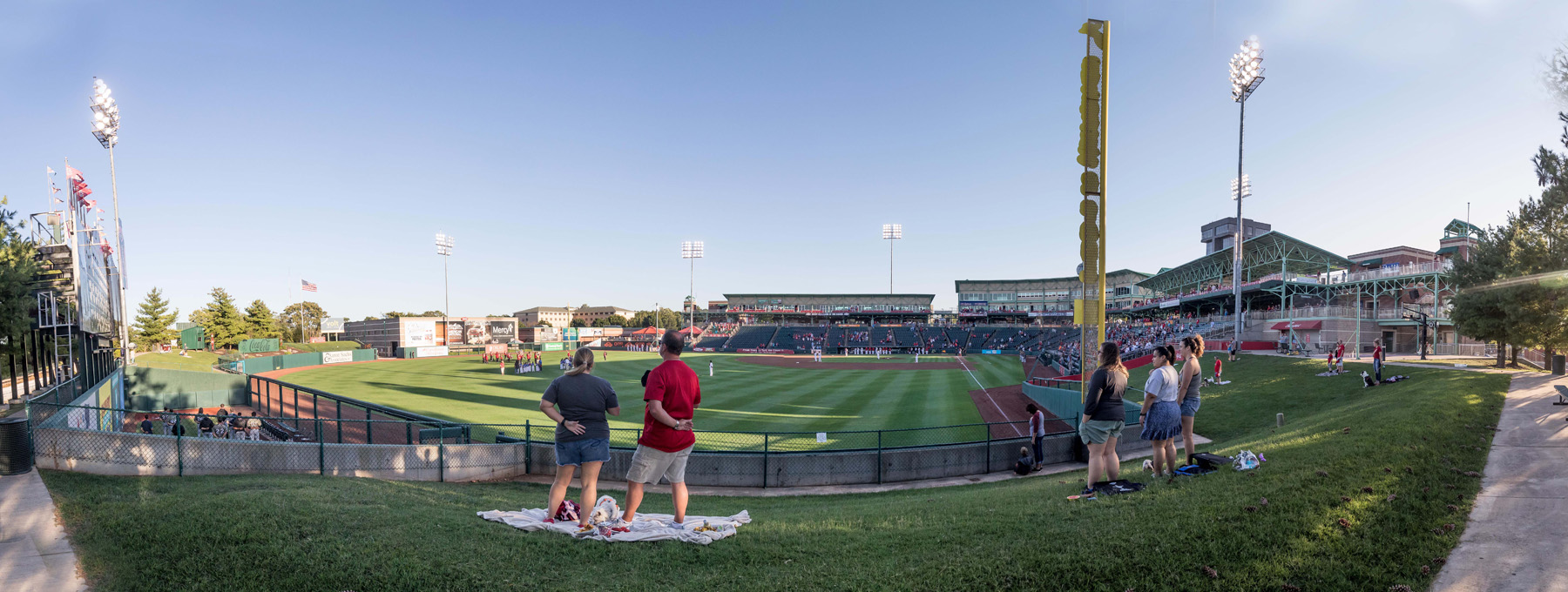
In Texas League, and in the 2000s, Hammons stadium deal stands out
The Springfield Cardinals exist because the city and Hammons worked together to build a stadium that the St. Louis Cardinals, which is one of the few pro teams that owns its Double-A affiliate, couldn’t say no to. The ballpark area was developed with funding from bonds that voters across the city approved.
“We had the community's blessing,” Finnie said, reflecting on the unique partnership and the status of the ballpark, which was part of a broader plan approved by voters for Jordan Valley Park.
“I think it's probably been the only referendum in the history of Springfield that received over 50% voted for in every precinct. I don't know if you can get 50% of the people in every precinct to agree whether the sun comes up on the east or the west.”
The Hammons Field development was an early 2000s agreement that involved both modern financing mechanisms and the type of 1970s-era maverick development referenced by Reichard, the Ballpark Digest founder.
“Everything with John Q. Hammons was very unique,” Reichard said. “He bred a whole bunch of butterflies out there in his development efforts.”
And after Hammons died, Reichard said, a lot of those developments got left in the lurch.
He said that whoever buys Hammons Field will have to have a plan in place for improving it if they want a shot at keeping the Cardinals in Springfield.
In 2020, Major League Baseball took over the minor leagues and instituted a realignment that severed affiliations of 40 teams, many of which remained linked to MLB in partner independent leagues. Reichard likened the change to the “blip” in the movie “Avengers: Endgame” that causes half the population to suddenly vanish and leaves the remaining survivors to pick up the pieces and rebuild.
In the minor leagues, rebuilding is a requirement. Along with the improvements the Cardinals are lobbying for in a lawsuit, Major League Baseball is demanding that stadiums meet a set of facility standards or else. Hammons Field will need to add women’s locker rooms, among other improvements, or risk falling below MLB’s standards for its affiliated stadiums, as the Springfield News-Leader reported last summer.
Reichard said he has seen the estimates for those improvements run the gamut. In Quad Cities, Iowa, the stadium for the River Bandits, a High-A affiliate of the Kansas City Royals, needs about $3.5 million in improvements.
“They were already operating close to standards,” Reichard said. “Their biggest change, which is the biggest change for anyone, is adding the women's changing rooms. And then adding an additional pitching area, batting cage. But they'd already done their lights. Lights are usually the most expensive thing to be overhauled.”
In Spokane, Washington, where the Spokane Indians, the High-A affiliate of the Colorado Rockies, plays in a ballpark built in 1958, the stadium is in need of about $20 million in upgrades.
Where Hammons Field falls on that spectrum isn’t known. A plan to upgrade each affiliated ballpark, including how the upgrades will be financed, has to be submitted by the end of the 2023 season if the improvements aren’t already complete.
“It's much more imminent,” Reichard said.
Who will submit those plans on behalf of Hammons Field, if they’re submitted, remains an educated guess at best.
Jeff Kessinger of the Daily Citizen contributed research to this in-depth report.


